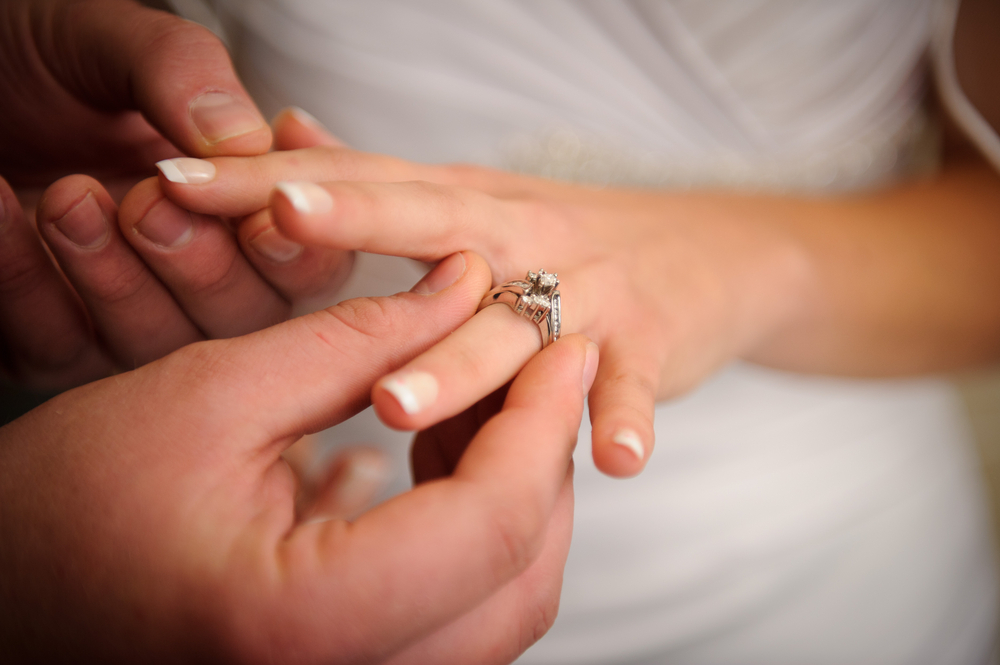Breaking
Religious liberty is rallying cry after gay marriage ruling
NEW YORK — Now that same-sex marriage is legal nationwide, religious conservatives are focusing on preserving their right to object. Their concerns are for the thousands of faith-based charities, colleges and hospitals that want to hire, fire, serve and set policy according to their religious beliefs, notably that gay relationships are morally wrong.
The Republican Party’s 2016 presidential candidates are already campaigning on the issue. And Wisconsin Gov. Scott Walker is urging President Barack Obama and the nation’s governors “to join me in reassuring millions of Americans that the government will not force them to participate in activities that violate their deeply held religious beliefs.”
The religious liberty fight isn’t about what happens inside the sanctuary. First Amendment protections for worship and clergy are clear. Potential conflicts could arise, however, over religious organizations with some business in the public arena. That category ranges from small religious associations that rent reception halls to the public, to the nation’s massive network of faith-based social service agencies that receive millions of dollars in government grants. Some groups, such as the U.S. Conference of Catholic Bishops, also want protections for individual business owners who consider it immoral to provide benefits for the same-sex spouse of an employee or cater gay weddings.
U.S. Supreme Court Justice Anthony Kennedy raised the issue in the majority opinion Friday granting gays the right to marry. He said First Amendment protections are in place for religious objectors, who “may continue to advocate with utmost, sincere conviction that, by divine precepts, same-sex marriage should not be condoned.”
But in his dissent, Chief Justice John Roberts predicted a clash ahead between religious freedom and same-sex marriage. He specifically noted the dilemma for religious colleges that provide married student housing, and adoption agencies that won’t place children with gay couples.
“There is little doubt that these and similar questions will soon be before this court,” Roberts wrote.
Conservative religious groups have for years been on watch for potential clashes over religious liberty and gay rights, and have been lobbying for religious exemptions in statehouses and Congress. But conservative anxieties intensified over an exchange during April’s oral arguments in the gay marriage case between Justice Samuel Alito and Solicitor General Donald Verrilli.
Alito noted the high court’s 1983 decision to revoke the tax-exemption of Bob Jones University in South Carolina because it barred interracial dating. Alito asked if the government would take such action against religiously affiliated schools that oppose same-sex marriage. Verrilli said, “It is certainly going to be an issue. I don’t deny that.”
Earlier this month, more than 70 Catholic and evangelical educators sent a letter to House Speaker John Boehner and Senate Majority Leader Mitch McConnell urging them to take action to protect conservative religious schools in case of government action to revoke the schools’ nonprofit status.
And last week in Congress, Sen. Mike Lee of Utah and Rep. Raul Labrador of Idaho, both Republicans, introduced the First Amendment Defense Act, which would prohibit the federal government from taking action against an institution that opposes same-sex marriage by revoking a tax-exemption or barring them from receiving grants or contracts.
Marc Stern, a religious liberty expert and general counsel to the American Jewish Committee, noted that in the three decades since the Bob Jones decision, the IRS hasn’t sought to revoke the tax exemption of another school over discrimination based on race or gender.
The Supreme Court decided the Bob Jones case based on a violation of fundamental public policy, not whether the school’s policy was unconstitutional, Stern said. There is no federal law barring discrimination based on sexual orientation.
Still, Michael Moreland, a vice dean and professor at Villanova University School of Law, said the concern over losing tax-exempt status is “a real one.”
“The fact the majority opinion for the court did mention the religious institutions’ right to engage in advocacy with regard to their views about marriage means I don’t think there’s a rush to confront those problems, but they’re there,” Moreland said.
GOP presidential hopefuls are working to keep religious liberty in the forefront.
At the Faith and Freedom Coalition conference in Washington last week, Texas Sen. Ted Cruz said, “The IRS will start going after Christian schools, Christian universities, Christian charities” and “any institutions that follow a biblical teaching of marriage.”
Louisiana Gov. Bobby Jindal said, “Hillary Clinton and The Left will now mount an all-out assault on religious freedom.” Jindal last month issued an executive order aiming to protect religious objectors after a House bill on the issue failed.
In an Associated Press-GfK poll in April, more than 8 in 10 Republicans said it was more important to protect religious liberties than gay rights.
Many gay marriage advocates say the conservative outcry over religious freedom is merely a cover for bias and an attempt to deprive gays of their newly won rights. Elliot Mincberg, a Washington attorney and senior fellow at the liberal People for the American Way, said while some religious exemptions might merit consideration, “the religious right knows a fundraising opportunity when they have one.”
But some gay rights supporters say a balance must be struck between religious liberty and protections against discrimination for gays, as religious conservatives’ fear grows about whether their institutions can keep operating under the dramatically new circumstances. Jonathan Rauch, senior fellow at the Brookings Institution, said conservatives “have grounds for concern but not grounds for panic.”
“I don’t think the issues are imaginary,” said Rauch, “and we know that because the U.S. solicitor general told us so.”
Zoll is the AP national religion writer. Peoples reported in Washington. AP news survey specialist Emily Swanson contributed to this report.






















